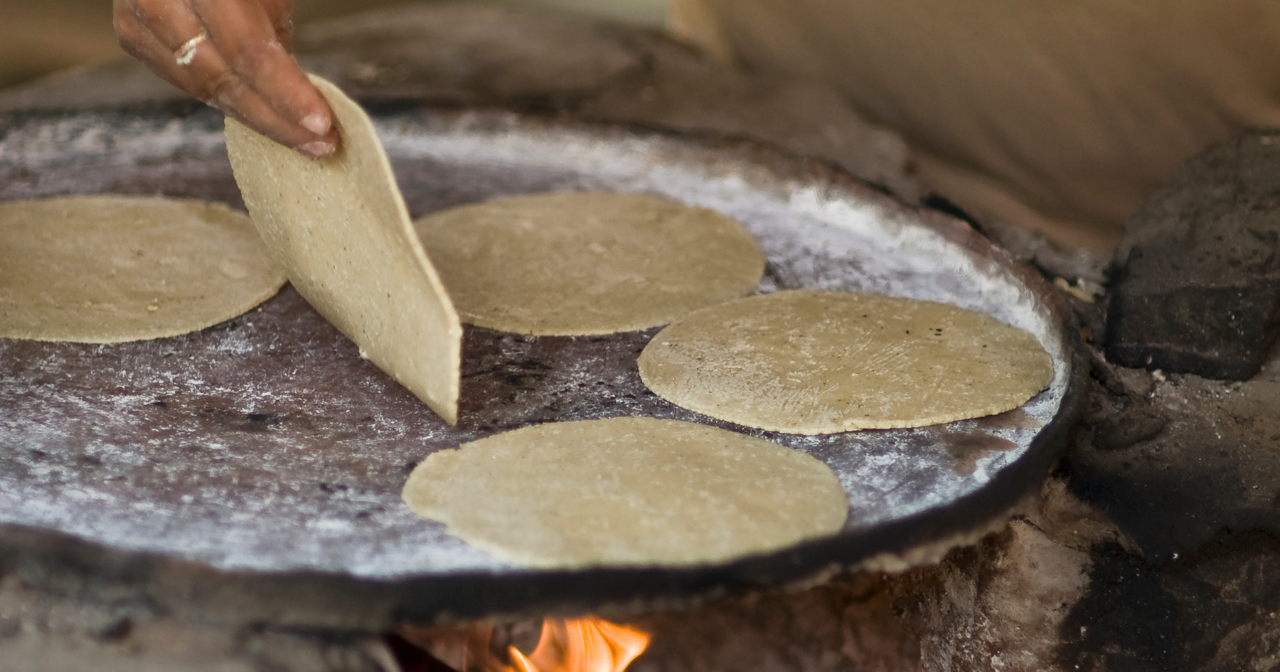Improving the Reproductive Health and Well-Being of Latinas Through Healthy Nutrition
A healthy pregnancy involves a number of components, including physical activity, appropriate weight gain, balanced nutrition or diet, and supplements, such as prenatal vitamins or multivitamins that contain folic acid. Folic acid, which is a B vitamin, is especially essential prior to becoming pregnant and in the first 12 weeks of pregnancy. Found mostly in dark green vegetables, beans, and enriched grains—which constitute most flours, cereals, and breads on the market today—people who are pregnant or looking to conceive should also take a folic acid supplement as even a high-folate diet may not be enough to meet the CDC recommendation of 400 micrograms (mcg) of folic acid a day.
Why is folic acid so important for a healthy pregnancy? Research has shown that taking folic acid supplements for at least one month prior to becoming pregnant and for three months afterwards can significantly reduce the risks of neural tube defects. This type of defect occurs in the first trimester as a fetus’ vital organs, brain, and spinal cord develop. If the spinal cord doesn’t close all the way a neural tube defect is formed. The most well-known of these is spina bifida, which occurs in between 1,500-2,000 babies a year.
As in other areas of reproductive health, disparities impacting many people exist, in this case around the use of folic acid supplements. Hispanic women have higher rates of having a baby with a neural tube defects than non-Hispanic women in the United States, in part because they have less access (e.g., lack of health insurance and/or medical provider) or knowledge about the important role folic acid plays in positive pregnancy outcomes. And, although in 1996 the FDA mandated that all enriched grain cereal products be fortified with folic acid, this did not extend to corn masa flour, a dietary staple among many Latino families.
In 2016, UnidosUS, a nonprofit organization that advocates for Latinos in a number of areas, including health care, successfully worked in coalition with other organizations for nearly a decade to petition the US Food and Drug Administration (FDA) to permit fortifying corn masa flour with folic acid. This important step has already done much to close the disparity gap and improve maternal and child health in Latino communities across the country.
Since then, UnidosUS has continued supporting policies and developing programs to help Latinos live healthy lives no matter where they live, their economic circumstances, or their cultural background. For example, Comprando Rico y Sano (Buying Healthy and Flavorful Foods) aims to reduce hunger insecurity and instill healthy shopping and eating habits among Latinos. Through the program, promotores de salud (community health workers) engage their community in a peer-to-peer, interactive way. They hold culturally sensitive nutrition education classes or charlas, and conduct local grocery store tours and cooking demonstrations, among other activities, that promote health-conscious shopping and cost-savings strategies.
A key component to Comprando Rico y Sano is assisting community members in enrolling in the Supplemental Nutrition Assistance Program (SNAP). SNAP provides additional resources to families with the goal of improving the quantity and quality of food that they buy. Participation in the program is linked to increases in food security and improved nutritional outcomes for children. Due to the coronavirus pandemic, Comprando Rico y Sano has also expanded their efforts in two other important areas and is now granting funds to enroll Latinos in other federal nutrition programs (WIC, school lunches, etc.) as well as service distribution (food delivery, referrals to food pantry, etc.).
Over the last six years, Comprando Rico y Sano has entered more than 30 communities nationwide. In 2019-2020, the program reached approximately 4.3 million Latinos with nutrition and SNAP information via news and social media and 87,774 Latinos with face-to-face nutrition education and community events. Promotores helped 24,381 eligible Latinos enrolled in SNAP in the last year alone.
A key tenet of Comprando Rico y Sano is increasing the consumption of fruit and vegetables, many of which are rich in folic acid, and home-cooked meals across Latino communities in the United States. It’s important to note that in the 2019-2020 year, UnidosUS saw an increased fruit intake of 44% and vegetable intake of 50% among participants in 25 communities spread across the country. By providing comprehensive and culturally sensitive information and combining it with hands-on activities, Comprando Rico y Sano and its promotores are improving the health and reproductive well-being of Latinas in this generation and the next.
To learn more about the Comprando Rico y Sano program, visit our site.
Alejandra Gepp is the Health Programs Director for Training and Engagement at UnidosUS.


